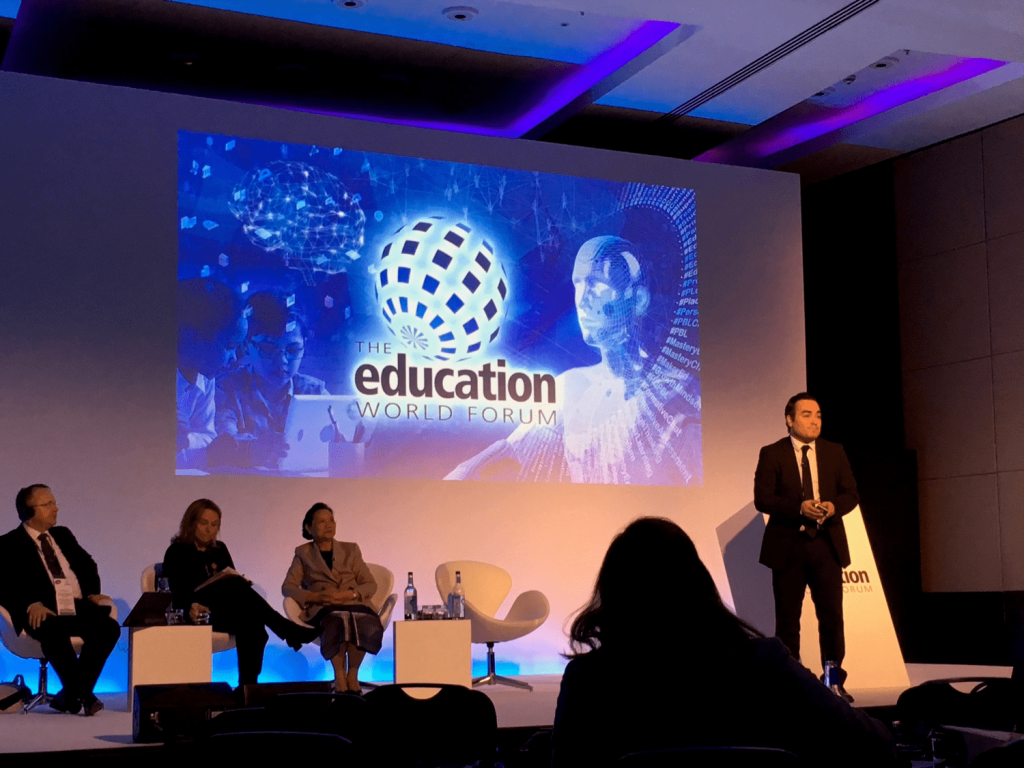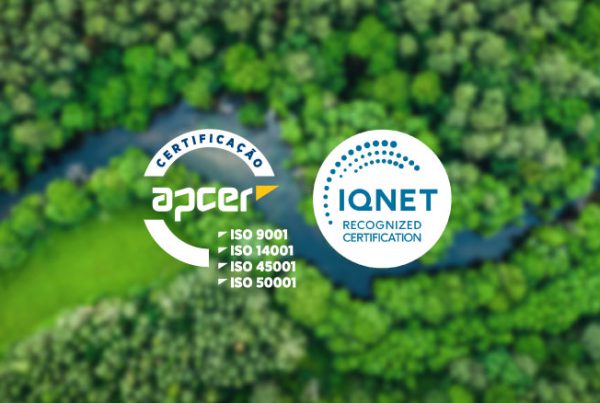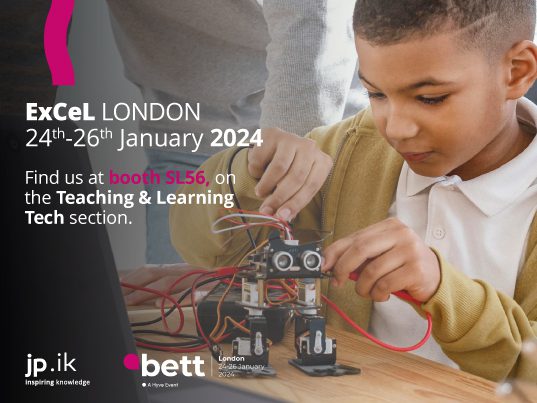From January 21 to 24, London played host to the world’s largest gathering of education and skills ministers.
The Education World forum (EWF) brings together ministers and their senior advisers, who represent over two-thirds of the world’s population, to debate the future of education, including the policies in order to achieve it.
The Foreign and Commonwealth Office (FCO), the Department for Education (DfE), the Department for International Trade (DIT), the Department for International Development (DfID), the British Council and the EWF industry partners support this highly acclaimed event. For its turn, jp.ik is one of the few industry partners selected to attend this Event.
The Education World Forum (EWF) offers three days of inspiring insight from leading education pioneers, policy makers and education experts. The event counts with debate panels, keynote sessions and opening sessions given by education ministers themselves as part of an honest assessment of countries’ common issues and challenges.
This year some of the themes opened to debate were, for instance, the links between developing skills of global competence and both individual and national success; how to fund and foster education change or how to prepare students for success. In addition, the influence economics have on education and influence can education have on economics; how to provide development for existing teachers and how to prepare new teachers for working through the 4th industrial revolution; and, what are the challenges for equity when it comes to gender, ethnicity, disability and relative wealth were also brought to discussion.
Nuno Oliveira, jp.ik VP WW Sales & Marketing, participated in the Ministerial Exchange on Tuesday afternoon dedicated to the theme – “How can and should policy be developed to enable education equity.†In his five minutes’ speech, Nuno Oliveira shared how Popup School’s solution can support equity, contributing to the achievement of a quality education for all.
The Popup School is a paradigmatic example of the work developed by jp.ik, whose prototype was on display at EWF 2018. This modular classroom, which uses renewable energy, is equipped with the most innovative technology and its implementation is a fast and simple process, providing a sustainable educational center for communities that need a quality infrastructure.
After three days of debating the future of education, a new buzzword came to life – global competencies. Teachers need to give their students lessons in “global competenciesâ€, such as how to work well with people from different cultures alongside with Math, English and Chemistry lessons, if they are to succeed in today’s digitizing world, which is in constant transformation.
“Global competencies†is not just a new buzzword, nor is it something restricted to the small elite. In fact, the agenda is especially relevant for developing countries where digitalization is arising and where there are greater risks of radicalization, something that the global competence agenda may be able to help to mitigate.




